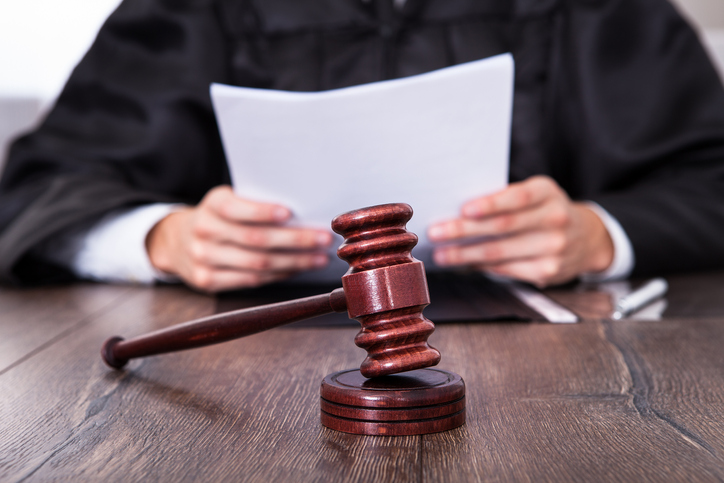I. Introduction
Sometimes disputes cannot be resolved amicably, through
mediation or negotiations and end up in the Courts of Poland.
It is therefore worth knowing what the court system looks like
in Poland and what the principles of litigation.
II. Principles – Litigation / Poland
1. What are the forms of dispute resolution in Poland?
Disputes in Poland may be resolved before:
- common courts (by default)
- arbitration courts (if agreed by the parties)
- before registered mediators (if agreed by the parties).
2. What are the court types in Poland
Justice system in Poland is consists of Supreme Court, common
courts, administrative courts and military courts.
Most of the cases, incl. commercial litigation, civil litigation
and criminal defense is performed before the common courts,
i.e.:
- Regional Courts (courts of I instance for small claims),
- District Courts (courts of I instance for other claims, and
court of appeal for small claims) - Courts of Appeal (court of appeal for other claims).
3. How many instances are available in litigation?
As a general rule, all judicial proceedings are of two-instance.
Right to appeal to the higher-level court is guaranteed by the
principal rule of Polish Constitution.
4. What is the number of judges hearing the case?
As a rule, cases are heard by a single-judge in the first
instance and by a three-judges in the second instance (appeal
proceedings).
5. What is the language of court proceedings?
International disputes before Polish common courts struggle with
significant inconvenience – all the materials, incl. emails,
contacts, testimonies etc. – must be sworn translated into Polish
language. This significantly increases the cost and slows down the
proceedings.
The court proceedings, incl. court hearings are conducted in
Polish language, and if the participants do not speak Polish, an
interpreter of the relevant foreign language needs to be
present.
Above rules do not apply to arbitration proceedings – as here
the parties may freely decide on the language.
6. Cost of Litigation in Poland
Under Polish procedural law, there are two main types of fees /
expenses that are incurred by the parties:
- court fees; and
- litigation expenses;
- legal fees.
7. Court fees
Launch of commercial disputes or civil disputes before Polish
courts requires payment of the court fee which amounts to
5% of the claim value.
In commercial cases where the debtor has confirmed (recognized
the debt amount) the plaintiff may benefit from discounted court
fee of 1,25% of the claim value.
8. Litigation expenses
Litigation expenses include inter alia fees of experts,
translators, and reimbursement for witnesses. Those fees are paid
by the Court, however parties may be required to provide relevant
advance payment.
9. Legal fees
Law Firm or professional attorney fees are to be freely
agreed by each party. There are no major restrictions what
can be agreed between client and the Law Firm in Poland. Attorneys and Barristers
are however not allowed to work based on rule no win no fee.
10. Attorney / Barrister / Litigator – litigation lawyers in
Poland
As per Polish law – attorneys (radca prawny) and barristers/
counsels (adwokat) are allowed to represent the clients before
Polish Courts. There is no bigger difference between barristers and
attorneys – it is mainly historical and recently merely related to
admission to different association (Bar Association or Attorneys
Association). Both – attorneys and barristers – work in as
commercial litigator/s in the same Law Firms.
III. Preparation for Litigation in Poland
Prior to filing a lawsuit to the court of law, the plaintiff
shall:
- collect the evidence,
- evaluate risks and expenses,
- develop litigation strategy.
Above is particularly important in court dispute/s involving
contentious issues (e.g. IP disputes).
1. Cease and desist / demand for payment notice of dispute
In commercial disputes, it is often a formally requirement that
the plaintiff, prior to starting judicial process, attempts to
resolve the dispute on the out of court basis.
As a result, most commercial disputes in Poland start with
pre-judicial:
- notice of dispute,
- cease and desist letter,
- demand for payment, or
- any other communication that encourages the opposing party to
resolve the dispute amicably.
IV. Start of Litigation in Poland
1. Lawsuit and launch of litigation proceedings
Ideally the lawsuit should contain:
- facts description
- legal reasoning
- all available arguments
- and available motions to admit evidence.
Evidence in a form of document or other tangible form should be
attached or enclosed to the lawsuit. With respect to witnesses,
their names and addresses shall be indicated in the lawsuit so they
can be summoned by the court.
If any evidence is not listed, the plaintiff may have
difficulties introducing it later, unless the delay was objectively
justified or admission is separately allowed by the court.
2. Defense of the counterparty
Once the lawsuit is properly lodged to the court, the copy of it
will be delivered to the defendant, indicating a period within
which the defendant must respond — in practice almost always
14 days (however the court may provide a longer period).
The response / defense shall contain all arguments of the
defendant and all motions to admit evidence.
V. Litigation Process
1. Court hearings
After the lawsuit and the defense have been filed, the Court
sets the date and hour of the first hearing and notifies the
parties in writing. Depending on the court and its location in
Poland, the time between filing a response and the date of the
first hearing is usually 2–9 months (the longer period
applies to bigger cities).
Pre-trial hearings not available
In Polish commercial litigation and arbitration there is no
institution of pre-trial hearings. If a case is brought, it always
goes to trial and ends with a court decision. An exception may be
the withdrawal of an action or the conclusion of a settlement by
the parties during the trial.
Number of court hearings
In each case, the court generally sets several trial dates,
depending on the number of witnesses and the complexity of the
case. These dates are often far apart and do not occur day by day
(intervals of several months).
2. Timeline of litigation
First, all witnesses are heard, and only at the end can the
court hears the parties. Finally, before closing the litigation
attorneys have time for closing speeches.
After this the court formally closes the hearing and issues the
judgment.
Commercial litigation in Poland, depending on
how complex the case is, takes couple of months (6 months) to up
couple of years (even 5 years in complicated court disputes
requiring witness experts) .
3. Evidence
The most common evidence in trials in Poland are documents,
official documents, witness testimony, party testimony, expert
opinion.
Hierarchy
There is no hierarchy in terms of evidence, however, in
practice, courts treat evidence from party testimony as of lesser
value, as the parties have a direct interest in the outcome of the
case.
Subpoena to present document
Courts may also require (demand) a party and other persons to
provide a document if such is in their possession.
Expert Witness
In Polish litigation – expert witness may be only
appointed by a judge and must be as independent and impartial as
the court itself.
Private expert witnesses may be engaged by the parties to
provide expert opinion but such opinion would be of lower
evidentiary value for the court (in comparison to expert option
provided at the direct order of the court).
Other evidence
Polish civil procedure does not limit evidentiary measures. As a
rule – anything could potentially serve as evidence, this
includes e-mail, photos, videos, audio recordings, blood samples,
etc.
4. Settlement
At the beginning of each case, the judge encourages the parties
to reach an agreement or enter into mediation.
The parties to the dispute can settle at any time before the
judgment is issued (at both the first and second instance).
Settlement may be made either:
- before the court – where the terms of the settlement are
recorded in the minutes of the hearing and signed by the parties or
their representatives, or - outside the court – where the terms of the settlement shall be
delivered to the court for approval; in such case the plaintiff
shall also request for case discontinuation (otherwise the
litigation will proceed despite the concluded settlement).
One of the benefits of the settlement is that the plaintiff will
be reimburse all or part of the court fee (depending on the timing
of the settlement and the progress of the proceedings).
VI. Appeal
1. Request for written motives of the court ruling
Within 7 days from issuance of the judgment, a party may request
a written justification (motives).
If the party intends to appeal the judgment, it must apply for
written motives, otherwise appeal will not be permissible.
2. Deadline for appeal
When the written motives are delivered the party has 14 days to
file an appeal to the court of second instance.
3. Court fee for appeal
The appeal is again subject to a court of 5 % of the case value.
The fee as to be paid in advance within the 14 day deadline.
4. Appeal proceedings
The procedure before the court of second instance is similar to
that before the court of first instance, except that the court of
second instance does not carry out the evidence in its entirety but
may only supplement it. There is usually only one hearing after
which a decision is made.
The judgment of the court of second instance is final and cannot
be appealed against.
VII. Enforcement of judgements
As a rule, as long as the judgement is not final (i.e., the
appeal process is in progress) the judgement is not enforceable,
unless the court furnishes it with immediate enforceability
clause.
The enforcement clause is usually issued at the request of the
plaintiff who is able to prove that absence of immediate
enforcement proceedings may be detrimental.
VIII. Cassation Appeal to the Supreme Court
Moreover, in some cases, a party may file a cassation appeal to
the Supreme Court of Poland. Supreme Court does not examine
evidence or hear witnesses, but only adjudicates on the basis of
facts already established in previous court instances. Accordingly,
the Supreme Court does not constitute the third instance of civil
procedure in Poland. Rather, it is an “extraordinary”
court, hearing only some of the cases provided for in the Code of
Civil Procedure.
For example, a cassation appeal is inadmissible if the value of
the case is below PLN 50,000.
IX. Third party funding of dispute resolution
Litigation or arbitration funding is not overly popular in
Poland, nonetheless it exists mainly with regards to major disputes
or class actions.
X. FAQ – Litigation and Dispute Resolution in Poland
1. Do I have to appear in person in court in Poland to be heard
as a party or witness?
No necessarily, it is currently possible to be heard remotely by
videoconference or to give written testimony. In the case of an
online hearing, a link is sent by the court with instructions to
connect.
2. Is it possible to obtain reimbursement of legal costs?
Yes, if the case is won in its entirety, the court will award to
the winning party from the other party the reimbursement of the
costs of the trial and the reimbursement of the costs of
representation by a professional lawyer in the amount regulated in
the Regulation of the Minister of Justice. It is possible to apply
for multiplication of this rate, especially in complex cases and
where the workload of the litigation lawyer was above average.
In the case is only partially won, the costs are reimbursed only
in proportion.
3. Is representation by a professional attorney before a court
in Poland mandatory?
In most cases, no, but it is highly recommended.
4. Does the court take evidence ex officio, or do I have to
prove all my claims myself?
Polish civil proceedings are based on adversarial rule which
means that judges / courts role in evidence proceedings is very
limited. When bringing a claim, it is therefore important to
provide supporting evidence. Burden of proving facts lies on the
person who gains legal benefit from that fact (i.e., as a rule -
plaintiff).
5. Is there a system of precedent in Poland?
Polish judicial system is a typical continental system of law,
therefore, as a rule, there is no precedent law in Poland.
Although the Polish legal system does not recognize or provide
for precedents, attorneys and judges often make reference to
‘established line of jurisprudence’, which is formed by
individual judgments issued by successive courts. It is this
established line of jurisprudence that plays a very important role
in the Polish legal system each time a dispute is resolved. This is
despite the fact that this line of jurisprudence does not have a
binding character and any court, including a court of first
instance, may ignore it when resolving a dispute and issue a ruling
completely different from the commonly accepted ones. In doing so,
it may itself initiate a new line of case law. Of particular
importance are the court rulings issued by the Supreme Court in
Poland.
6. When the court ruling is enforceable?
As a rule, court judgments are enforceable after the judgment
becomes final and the court issues an enforcement clause. The
judgment becomes final and binding after lapse of the deadline for
appealing. After that the party may request the court to issue the
enforcement clause.
7. What documents do I need to start a case in Poland?
If you are a company you will need: 1. corporate excerpt from
your company register, 2. power-of-attorney and 3. supporting
evidence.
8. I have received the lawsuit from Poland – do I have to
file a defense pleading?
Yes, if you don’t answer the lawsuits within the given
deadline the court may issue the judgement in default to your
detriment.
The content of this article is intended to provide a general
guide to the subject matter. Specialist advice should be sought
about your specific circumstances.
#Litigation #Dispute #Resolution #Arbitration #Dispute #Resolution










